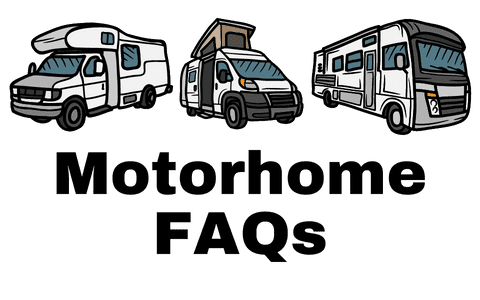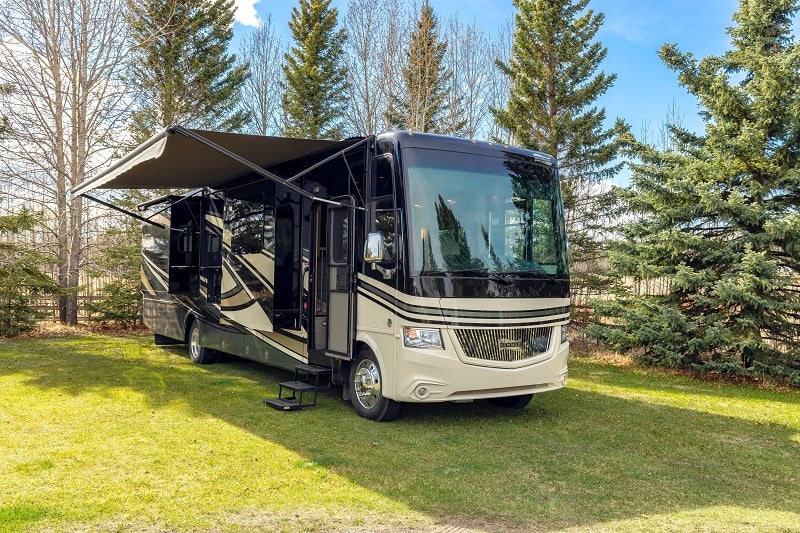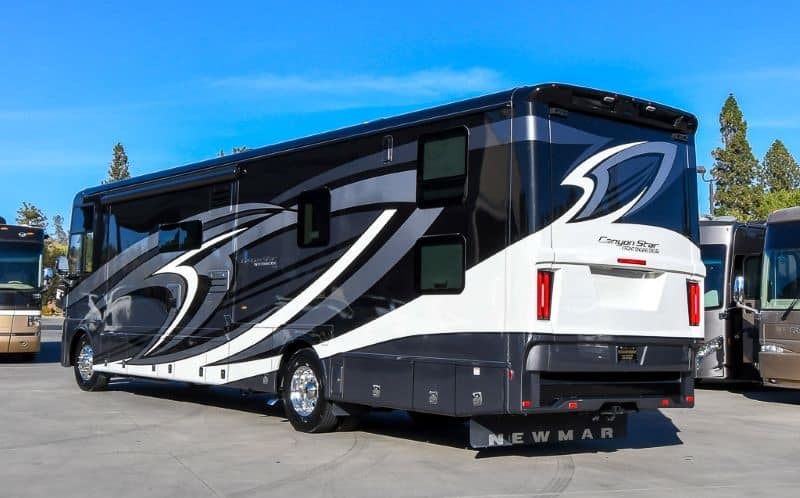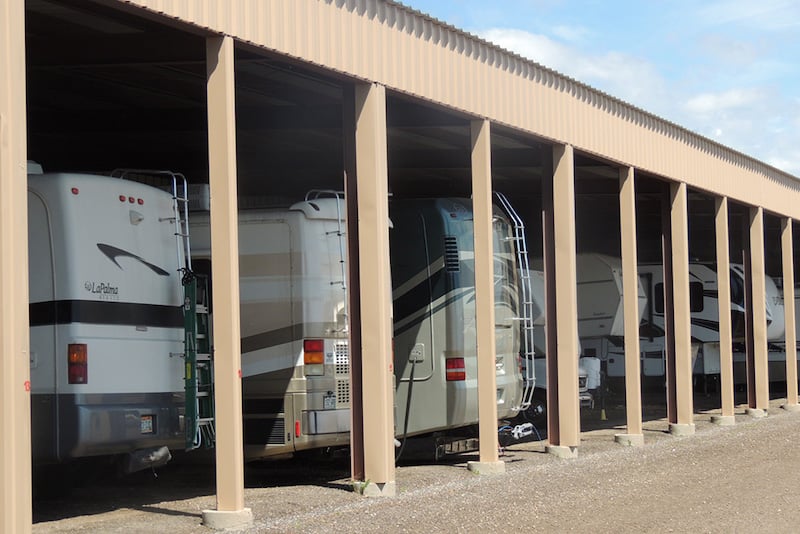Exactly how much does a motorhome cost to own? The purchase price is obviously your first consideration but that’s just the beginning. The after-purchase motorhome cost is something you have to budget for as well.
There’s simply no getting around the fact that owning a motorhome is an expensive portable living hobby. Even if you catch a good deal on a used motorhome, you have maintenance, upgrades, interior decor, fuel, insurance, and all the costs that come with it.
This isn’t an article talking you out of buying a motorhome, but simply one that addresses the reality of owning a motorhome. That’s not to say it’s more expensive than monthly mortgage payments, home insurance, residential upkeep costs, real estate taxes, and the typical monthly bills.
But what price are you actually paying? The freedom to move about? Catching the sunset over the spine of a distant mountain? Walking through the shade of Sequoia trees that were ancient when the Roman Empire ruled half a world away? To some, the price is well worth paying.
How Much Does a Motorhome Cost to Own?
How much a motorhome cost to own is all over the place. The number of types, styles, and sizes is immense. You have campervans, Class Cs, Super Cs, and Class As, not to mention the sizes and types within each of those categories.
Then there are used and new models for all of the above. So, let’s break it down by averages per category.
- Class B (Campervans): $110,000 to $200,000
- Class B (Campervans) Premium Used: $60,000 to $100,000
- Class B (Campervans) Used: $25,000+
- Class C: $50,000 to $150,000
- Class C Used: $30,000 to $70,000
- Super C: $250,000 to $300,000+
- Super C Used: $100,000 to $150,000
- Class A: $50,000 to $150,000
- Class A Luxury Premiums: $150,000 to $450,000
- Class A Used: $30,000 to $100,000
As you can see, those numbers typically contain a large disparity between them. That’s because there are so many factors involved that it’s virtually impossible to come up with a solid number. There are a lot of things that drive the upfront RV cost north as well.
These include various packages per model, additional propane tanks, additional batteries, whether it has a spare tire, insurance right off the seller’s lot, whether it has an Arctic package or something similar, freight fees, and the dreaded sales tax.
You’ll pay a small fortune for a 40′ Class A diesel pusher, or something much more reasonable for a Class C with no slides. However, all of this is an upfront cost, not the overall cost of the motorhome in the long run.
Everything that comes after the initial sale is where you discover the value (or lack thereof, depending on the person) of owning a motorhome.
What is the Biggest Motorhome Cost After Purchase?
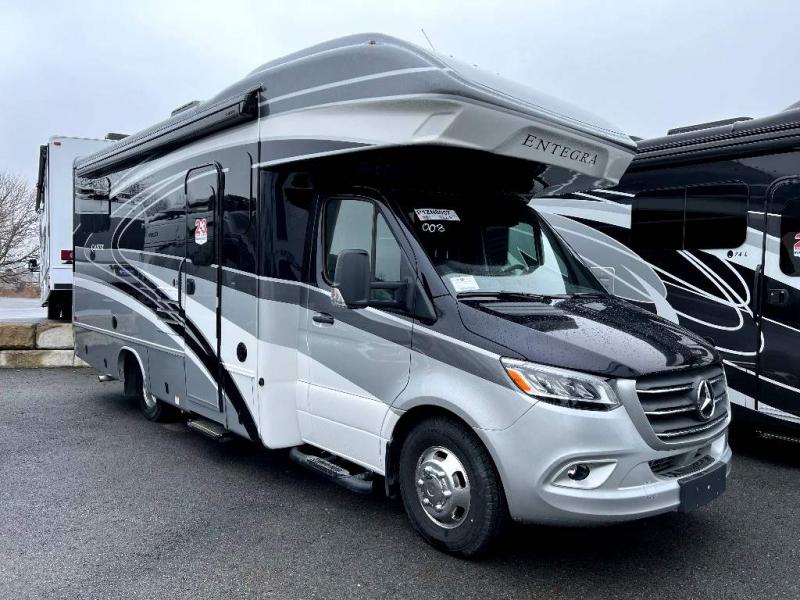
It’s a completely different ballgame from owning a residential home. With residential properties, you have your real estate tax, mortgage payments, monthly power, water, sewer, trash, and internet bills, some of which may or may not be consolidated. With a motorhome, those monthly obligations are a bit different.
Maintenance Cost
The average maintenance costs for most motorhomes is between $1,000 and $2,000 per year, not including anything severe going wrong soon after your initial purchase. This average includes some issues we’ll cover below as well.
All new RVs go through a shake-down period. Fortunately, anything that goes wrong in terms of manufacturer defects or workmanship is taken care of under warranty. Also, like some other categories below, maintenance levels are dictated by how much you use your RV.
If you are more than a weekend warrior and plan on using your RV regularly, you can and should become familiar with the workings of your RV. Knowing your RV inside and out, and performing your own maintenance and repairs can cut this motorhome cost down significantly.
Repair Costs
RV repair costs are like maintenance, except the severity is usually more extensive. Depending on what your insurance covers and what your warranty covers, repair costs range from minimal to extremely expensive.
It’s hard to attach a solid number to this one because of its random nature. However, don’t be surprised when your first repair bill gets handed to you and it’s in the thousands. Maybe that extended warranty wasn’t such a bad idea after all?
Motorhome Tire Cost
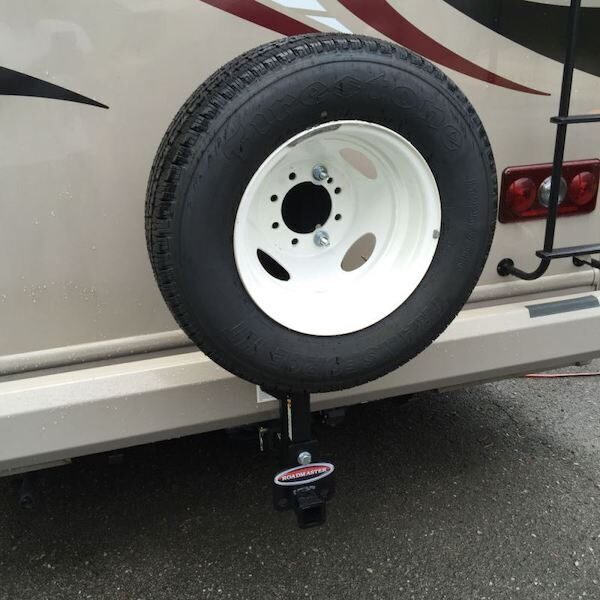
RV cost is one thing—expected—but digestible because you know you’re making a huge investment. But, wait until you have to change all the tires on one of them. Class B and even C tires are not as bad, but Class As are generally larger. The more rubber real estate, the more you’ll pay.
Changing all the tires at once, plus a tire rotation, is pricey. Sometimes you get a free tire rotation with the purchase of a full set, which makes it a little easier to empty out your wallet.
- Class A Tires: $250 to $300, sometimes higher
- Class B Tires: $110 to $300
- Class C Tires: $110 to $200
Class Bs sometimes eclipse the cost of Class As and Cs, due to the process in their design. The luxury appeal of some also includes the tires, which can get quite expensive.
In addition to the cost of the tire, you have to pay for installation. The grand total for your visit to the tire shop will run anywhere between $2,000 and $4,000, depending on the motorhome, where you’re at, and the cost of the tires + labor.
RV cost, in terms of tires and fuel, is entirely dependent on you and how much you plan on driving it. If your RV lifestyle is a once-in-a-blue moon, family activity, tires, and fuel are minor expenses that you won’t have to deal with in the first year of the RV.
Tires should be changed every 4 to 5 years unless you are on the road a lot. If you spend a lot of time on the hot-top, stick to changing the tires every 40,000 to 50,000 miles.
Fuel Costs
There are some large disparities in terms of fuel tanks, with Class As and Super Cs having smaller and larger tanks, however, the largest disparity is the price per gallon.
Fueling up in California will cost you a lot more than fueling up somewhere in the middle of the country. Fuel prices have skyrocketed and there isn’t much relief on the horizon. Unfortunately, the farther you go and the more often you go your fuel bill is going to rise.
Campgrounds
This one is wildly varied, depending on your rig and what you enjoy doing. If you travel cross-country and hit up every campground along the way, it’s costly. However, if you prefer to boondock and have memberships, the cost changes drastically (in a good way).
The per-week average of a campground is between $220 and $700. Per night, it’s anywhere between $39 and $115. Of course, you’re bound to find better and worse options on your travels, but those are dependable averages.
There is no cost to boondock on public land outside of fuel costs (generators) and maintenance costs for batteries and solar energy sources. You will have to dump somewhere, however, but it’s fairly cheap to do so. Propane fill-ups are something you have to consider as well.
Upgrades and Accessories
We really can’t put a price tag on this because it’s entirely up to you. It can get pretty costly to convert a brand-new motorhome into your own, personal style. Upholstery, curtains, cooking gear, stocking the fridge, interior aesthetics as a whole, and everything you need for personal hygiene adds up.
Then there are bigger accessories, such as solar panels, leveling equipment, and batteries (lithium is the most expensive) that are very pricey. While these accessories aren’t required and won’t be on everyone’s RV budget there are some you can’t avoid.
All the extra “stuff” that RVs require such as electrical adaptors, surge protectors, sewer and water hoses, and leveling gear, all add up. Some of these things you will have for years but they will need to be replaced eventually.
How Much Fuel Does a Motorhome Use?
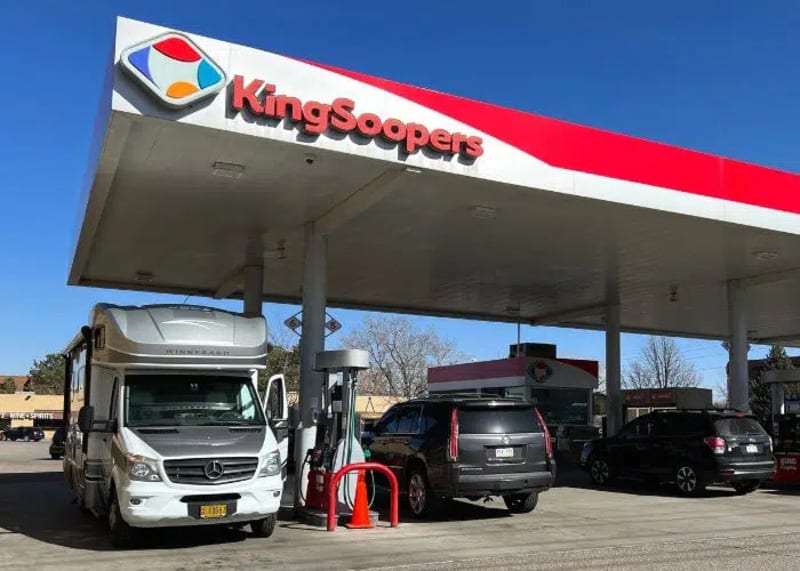
We touched on fuel costs already. however, this is the biggest concern most people have about owning a motorhome.
Fuel costs are more immediate and far more costly if you spend a lot of time on the road. The below costs are based on $3.29/gallon gas and $4.60/gallon diesel fuel prices.
- Class C 25-gallon Fuel Tank: $82.25/gas and $115/diesel per fill-up
- Super C 55-gallon Fuel Tank: $180.95/gas and $253/diesel per fill-up
- Class B Campervans 24-Gallon Fuel Tank: $78.96/gas and $110.40/diesel per fill-up
- Class A 100-gallon Fuel Tank: $329.00/gas and $460/diesel per fill-up
At this point, that overall RV cost is getting up there, right? The average fuel mileage for motorhomes fits into a tighter window. Class A averages 7 to 12 MPG (Miles per Gallon). Class Cs don’t get much better, at about 9 to 15 MPG.
The best gas mileage award goes to Class B motorhomes getting anywhere between 17 and 22 MPG. Obviously, being the smallest of the bunch, that makes the most sense. Super Cs are more comparable to Class A motorhomes.
Another interesting consideration to make is where you will spend most of your driving days. Your miles per gallon will be a lot different in Colorado than it will in Florida. The up-and-down driving is a gas or diesel-guzzling nightmare.
Also, unless you plan on running all your errands in a motorhome, you’ll have to tow your regular vehicle around, which will sap your gas mileage as well.
What Yearly Maintenance Does A Motorhome Require?
We touched on the maintenance responsibilities a little above, but it’s a lot more extensive when you really break things down. We’re dealing with massive trucks and vans melded with moving homes—thousands of pounds of shifting metal, oil, water, hydraulics, and everything else you can imagine.
Maintenance is just a part of the game, like it or not. The good news is, that the more proactive you are with preventative maintenance, the less you’ll spend in the long run. Another way to save big is to invest in yourself and your repair and maintenance skills. The more familiar you are with your RV’s workings the fewer repair bills you’ll have to pay.
Winterizing/De-Winterizing
If you winterize and de-winterize your motorhome yourself, the cost is fairly minimal, around $35 to $40. If you decide to have it professionally done, expect to pay three times that amount—once in the spring and once in the fall.
That may not sound like much, but it will certainly add up over the life of the motorhome, along with regular maintenance costs throughout the years. Winterization is a process and if you decide to do it yourself, you’ll pay the price in terms of labor.
Fluids have to be drained, including your hot water heater, before flushing the system while bypassing the water heater. It means having a solid understanding of the inner workings of your plumbing system and valves.
Proper winterization includes removing your batteries and unplugging everything inside. It’s also a good idea to build up your RV’s defenses against rodents that may want to find themselves a warmer home, shielded from the outside elements.
Preventative Maintenance
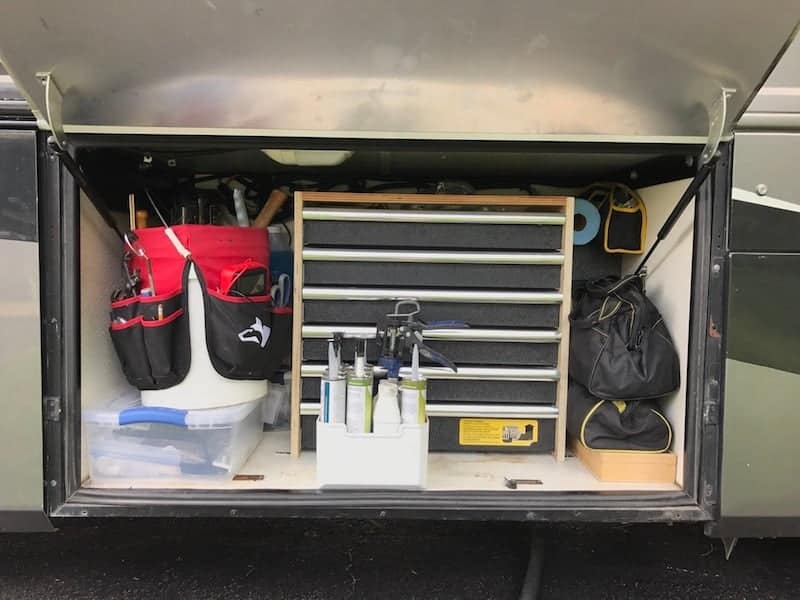
Another major part of the overall RV cost is preventative maintenance. We’re primarily referring to annual inspections to catch anything that might give you a problem further down the road.
It’s a good idea to have your RV professionally inspected for wear and tear but with a particular focus on the brakes, steering, and suspension systems. Go over your tires as well. It doesn’t matter how new they are if a single tack is buried in one of them, causing a slow leak.
You should have your motorhome’s tires rotated once every 3,000 to 8,000 miles. The difference in overall mileage depends on the recommendations of the tire’s manufacturer. Oil, oil filter, and air filter changes go without saying.
Transmission fluid changes should take place every 30,000 to 60,000 miles, depending on professional recommendations and how extensively you’ve pushed the RV.
Your RV A/C unit and appliances such as the fridge, furnace, and water heater should all be inspected yearly as well. Repairs to any of these items can be costly and any of these can end a trip if they fail.
What is the Cost of Motorhome Insurance?
It’s just one motorhome cost after another, isn’t it? Next up is insurance, which all states require some form of, even if it’s just the minimal liability-only variety. While there are a ton of factors at play here, we can give you an average cost for each type of motorhome.
- Class A: $1,000 to $1,500 per year
- Class B: Custom
- Class C: $800 to $1,200 per year
Class Bs are the outliers since there are so many varieties and sizes to deal with. You have everything from small skoolies to Sprinter vans to remodeled family vans. While the insurance on a Class B won’t be much different, you’ll need to call and get a custom quote.
Keep in mind that the total value of your motorhome and your location will have an impact on your quote. For instance, living in hurricane-prone Florida may run you a higher price than living in North Dakota.
How Much Does it Cost to Store a Motorhome?
The average RV cost for short or long-term storage is around $120 to $170 per month. Of course, you can always store your RV at home, assuming you have the room, and you can prep it for storage. You’ll need an overhang, exterior shed, or a large enough garage to accommodate your RV.
Is Renting a Motorhome Worth It?
Renting a motorhome is worth it in two ways. First, you get to experience the lifestyle without all the extra hassle. Sure, you have to keep it maintained and well-taken care of while it’s in your possession. But, once you turn it in, the RV cost goes right back to the original owner, not you.
Second, you can rent a motorhome to determine whether it’s worth fully committing and purchasing one later. In a way, you’re breaking yourself in. You learn about what it takes, many of the costs, and how to live life on the move. Renting an RV is a great way to determine if it’s what you want on a more permanent basis.
RVezy is one of the best peer-to-peer RV rental marketplaces in the U.S. and is worth checking out if you want to rent. This isn’t renting from a company, either. You rent directly from private owners of the RV, with RVezy serving as a kind intermediary.
Final Thoughts About Motorhome Cost
It’s understandable that most people assume RV cost is the price of the RV, and that’s where it ends. Of course, on a subconscious level, everyone is aware that you have to maintain the thing. However, it’s always best to see it on paper, so you have a stronger understanding of the costs.
Now that you know the overall cost, you can make the best decision that’s right for you and for your family. Who knows, maybe you’ll opt for a mansion on wheels with a powerful, diesel engine. Or, there’s always a teardrop.
Related Reading:
1. RV Oil Change: Average Cost For Engine Service
2. Are Motorhome Prices Dropping?
3. Do Motorhomes Have Spare Tires?
4. How To Easily Find RV-Friendly Gas Stations
About the Author:
Thomas Godwin is a full-time freelance writer with a BFA in Creative Writing, a U.S. Marine, and an avid outdoorsman.
When he’s not writing, he’s raising chickens and Appleyard ducks. Thomas also constructs teardrop campers (attempting to anyway) and kayaks the Blackwater River with his wife, two daughters, and his Dobermans.

